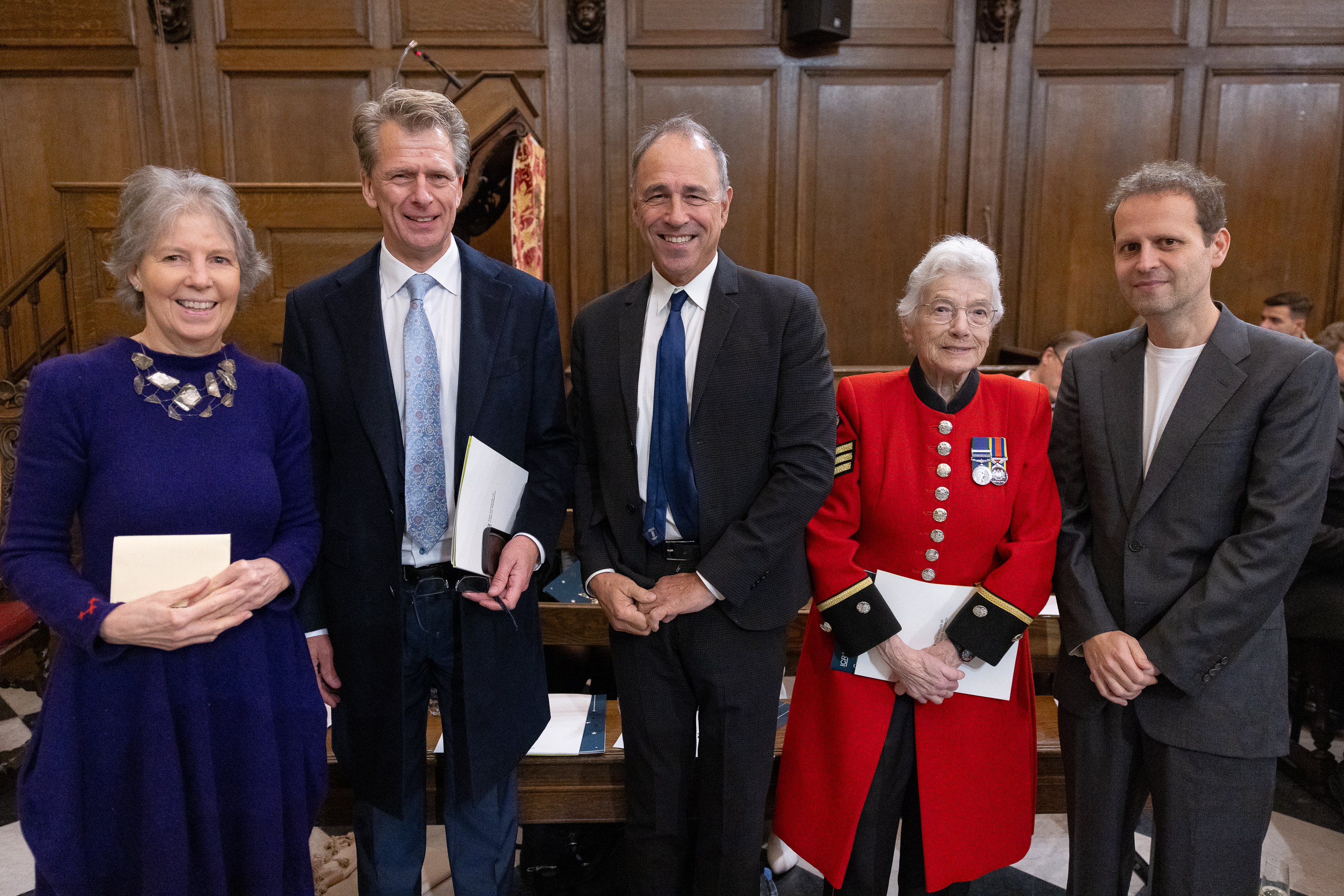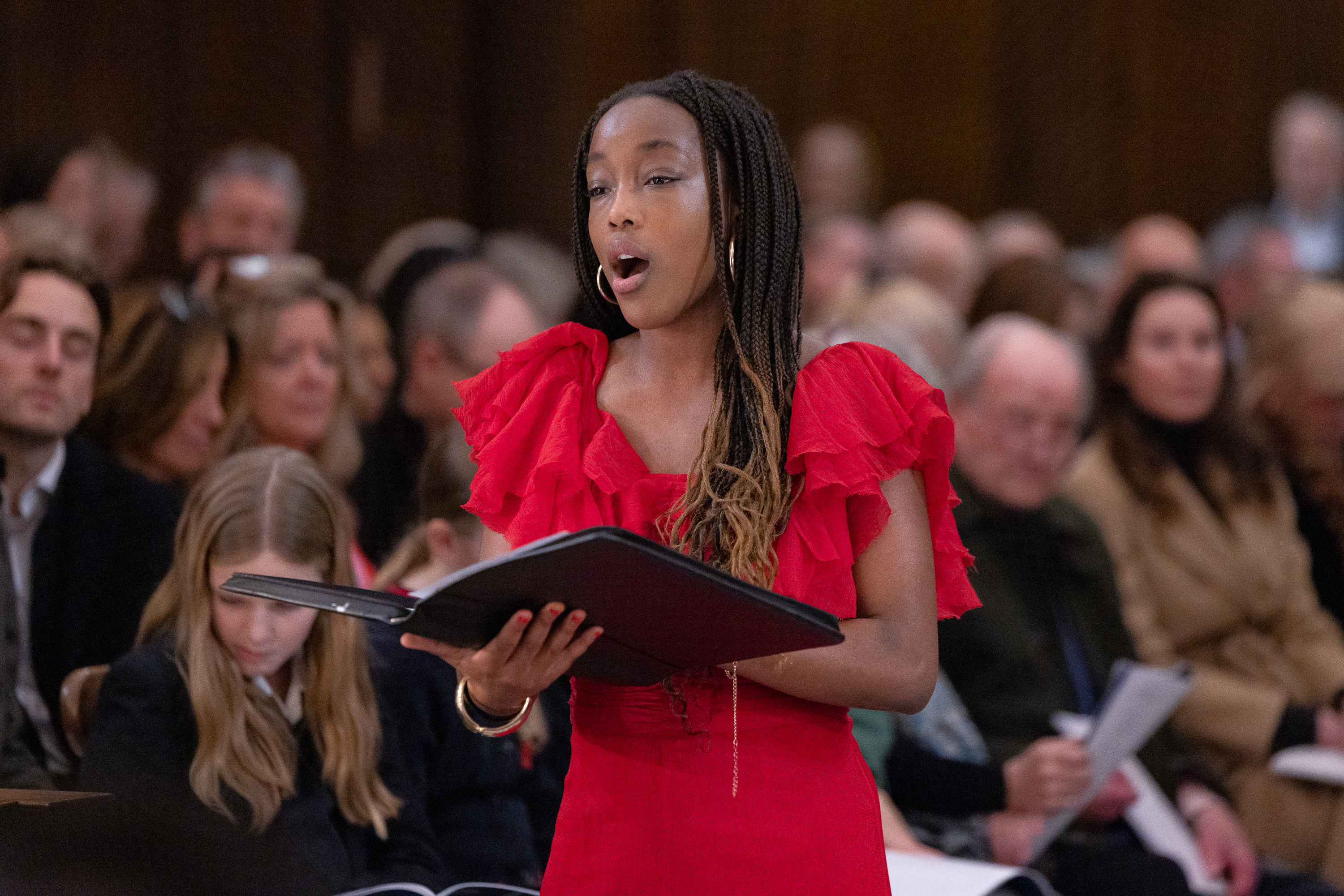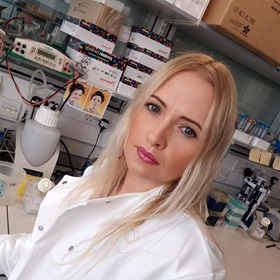
Image: (from left to right) Sally Clarke, Andrew Castle, Anthony Horowitz, Marjorie Coles and Adam Kay. Credit: Adam Duke Photography
Christmas arrived in style as celebrities and guests got into the festive spirit at Carols from Chelsea – raising more than £125,000 for The Institute of Cancer Research, London.
The flagship fundraising event, now in its 22nd year, was held in the stunning surroundings of the Wren Chapel at the Royal Hospital Chelsea. The evening started with a candlelit rendition of Stille Nacht, performed by the Chapel Choir, and included seasonal favourites such as Once in Royal David’s City. The choir was joined by BBC Young Chorister of the Year, Naomi Simon, whose beautiful performance of O Holy Night was one of the evening’s many highlights.

Image: BBC Young Chorister of the Year Naomi Simon. Credit: Adam Duke Photography
The service was led by the Reverend Steven Brookes and included readings from In-Pensioner Marjorie Cole, as well as broadcaster Andrew Castle, best-selling author Anthony Horowitz, writer and former doctor Adam Kay and chef Sally Clarke.
Afterwards, 300 guests enjoyed a Laurent-Perrier Héritage Champagne reception in the Great Hall. There were more than 150 fantastic prizes to be won from Lucky Envelopes and guests also bid for the chance to win everything from holidays to artwork, exceeding last year’s silent auction total by more than £10,000.
All in all, the sold-out event raised more than £200,000, which included a £76,000 legacy donation from Herve de La Moriniere, whose wife Lizie is a former Carols committee member. The legacy is funding a project on myeloma with Professor Martin Kaiser, Chair of Haematology and Group Leader of the Myeloma Molecular Therapy Group.
Funding world-leading research
Over the last two decades, Carols from Chelsea has raised more than £2m, with all proceeds funding the vital work that scientists at The Institute of Cancer Research (ICR) are doing to defeat cancer.
Adam Kay said: “I’m thrilled to support the ICR at this amazing event. I’ve dealt with cancer professionally in my former career as a doctor, and like most people I’ve dealt with it personally when friends and relatives have been affected. The work that the ICR does is absolutely crucial and it couldn’t be more important to me.”
Hannah Joyce, Deputy Director of Development (Philanthropy), said: “Carols from Chelsea is our flagship fundraising event and the perfect way to start the festive season. This year we’ve raised more than £200,000, an incredible amount that will help the ICR to continue its world-leading research. We could not be more grateful for our very generous donors and supporters.”

 .
.